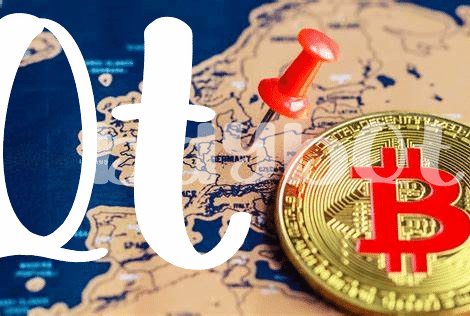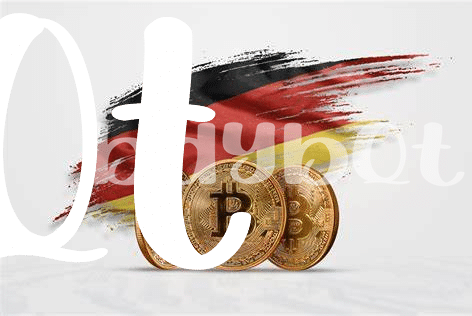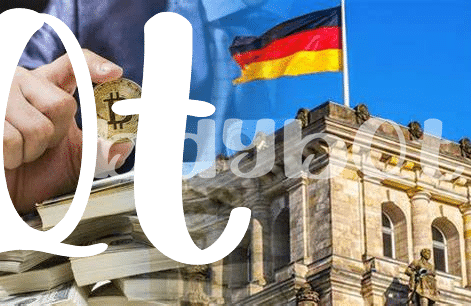Overview 🌍

Bitcoin, a digital currency that has revolutionized the financial landscape, is gaining increasing popularity in Germany. As one of the leading economies in Europe, Germany embraces innovation, making it an ideal market for Bitcoin enthusiasts. The decentralized nature of Bitcoin offers a level of financial autonomy and security that traditional currencies do not. Its appeal lies in the transparency and efficiency of transactions, providing users with a convenient alternative to conventional banking systems. Bitcoin transactions are borderless, allowing for seamless international payments without the need for intermediaries. This accessibility has fueled the growth of Bitcoin adoption in Germany, with a diverse range of individuals and businesses embracing this digital asset.
Germany’s approach to regulating Bitcoin purchases reflects a progressive stance toward digital currencies. The legal landscape surrounding Bitcoin transactions is evolving to accommodate the unique characteristics of this innovative payment method. As the country navigates the intersection of traditional financial systems and emerging technologies, the legality of Bitcoin purchases continues to be a focal point of discussion among policymakers and industry stakeholders. Understanding the legal framework is crucial for both consumers and businesses engaging in Bitcoin transactions, ensuring compliance with regulations while harnessing the benefits of this transformative digital asset.
Legal Framework 📜
In Germany, the legal framework surrounding Bitcoin purchases is intricate and evolving. The country does not consider Bitcoin as legal tender but as “private money,” which means it is subject to taxation. The Federal Financial Supervisory Authority (BaFin) plays a crucial role in regulating cryptocurrency activities, ensuring compliance with anti-money laundering laws. Additionally, the German government recognizes Bitcoin as a digital asset, making it subject to capital gains tax when sold or exchanged. Despite the lack of specific legislation targeting cryptocurrencies, existing laws are applied to regulate their use and trade within the country. This dynamic legal environment reflects Germany’s cautious approach towards integrating digital currencies into its financial system.
It is essential for individuals and businesses engaging in Bitcoin transactions to stay informed about the legal implications and comply with regulatory requirements. Seeking professional advice on tax obligations and regulatory compliance is recommended to navigate the evolving landscape of cryptocurrency regulations in Germany. The clear legal framework aims to provide a level of consumer protection while promoting innovation in the digital asset space.
Regulatory Bodies 🏛️

Within the German legal landscape, the oversight of Bitcoin transactions falls under the purview of various regulatory bodies. These entities play a crucial role in monitoring and enforcing compliance with laws relating to digital currencies. The Federal Financial Supervisory Authority (BaFin) stands at the forefront, overseeing financial activities and ensuring that businesses engaging in cryptocurrency exchanges adhere to stringent regulations. Additionally, the Central Bank of Germany collaborates with BaFin to create a comprehensive framework that promotes transparency and security within the crypto space.
To further reinforce regulatory measures, the Joint Financial Intelligence Unit (FIU) works in tandem with law enforcement to combat illicit activities and safeguard the integrity of Bitcoin transactions. This collaborative effort helps to maintain a balance between innovation and accountability, protecting both consumers and the financial system as a whole. By establishing a robust regulatory infrastructure, Germany aims to foster a stable and transparent environment for Bitcoin and other digital assets to thrive.
Tax Implications 💰

When it comes to the world of cryptocurrencies like Bitcoin, understanding the tax implications is crucial for individuals and businesses alike. In Germany, the tax treatment of Bitcoin purchases is determined by various factors, including whether it is classified as a form of currency or a commodity. The country views Bitcoin as a unit of account, making it subject to capital gains tax when sold or exchanged for traditional currency. Additionally, income generated from mining or trading Bitcoin is also subject to taxation, with different rates depending on the holding period. Navigating these tax rules requires a clear understanding of the legal framework and guidance from tax professionals to ensure compliance. Stay informed about the upcoming regulatory changes for Bitcoin in Cambodia to make well-informed decisions regarding your crypto activities.
Visit [upcoming regulatory changes for bitcoin in Cambodia](https://wikicrypto.news/navigating-compliance-guidelines-for-using-bitcoin-in-cameroon) for further insights on compliance guidelines and evolving regulations in the cryptocurrency landscape.
Consumer Protections 🔒
Consumer protection laws in Germany play a crucial role in safeguarding the rights and interests of individuals engaging in Bitcoin transactions. These laws are designed to ensure that consumers are provided with accurate information about their purchases, as well as mechanisms for recourse in case of fraud or disputes. The regulatory framework in Germany includes provisions that require transparency from businesses, protecting consumers from potential risks associated with digital currency transactions. By adhering to these measures, consumers can have more confidence in the security and reliability of their Bitcoin dealings.
Future Outlook 🔮

As we gaze into the future of Bitcoin purchases in Germany, one cannot help but ponder the evolving landscape of digital currencies. The advancements in technology and global acceptance of cryptocurrencies hint at a promising journey ahead. With increasing integration into mainstream financial systems, Bitcoin’s role in everyday transactions may become more prevalent, reshaping traditional economic norms.
For further insights on upcoming regulatory changes for Bitcoin in other regions, check out the upcoming regulatory changes for Bitcoin in Cameroon. It’s fascinating to observe how different countries are navigating the complexities of regulating this digital currency in the ever-changing financial world.
